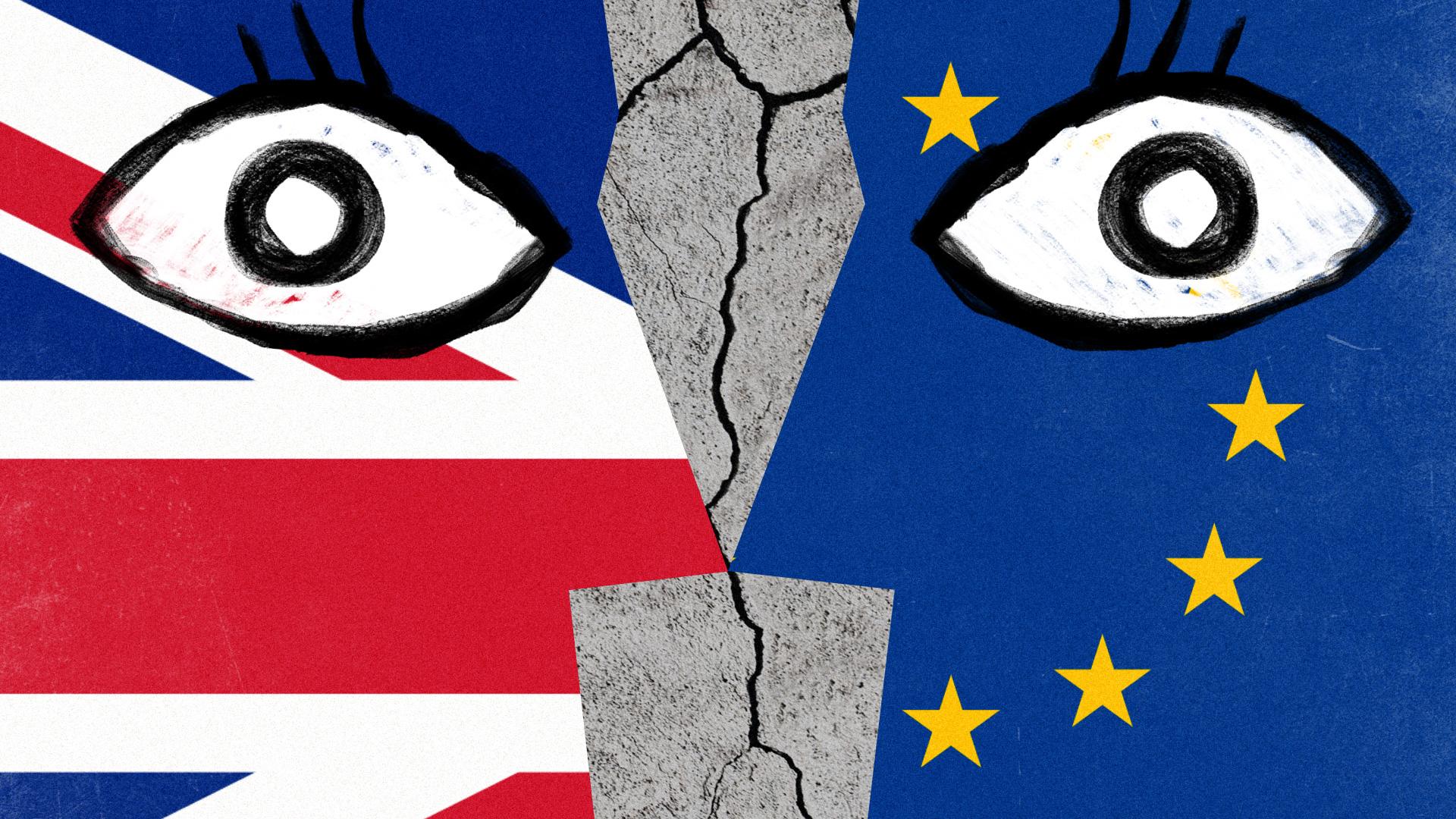Brexit: How one French port town is preparing
- Published
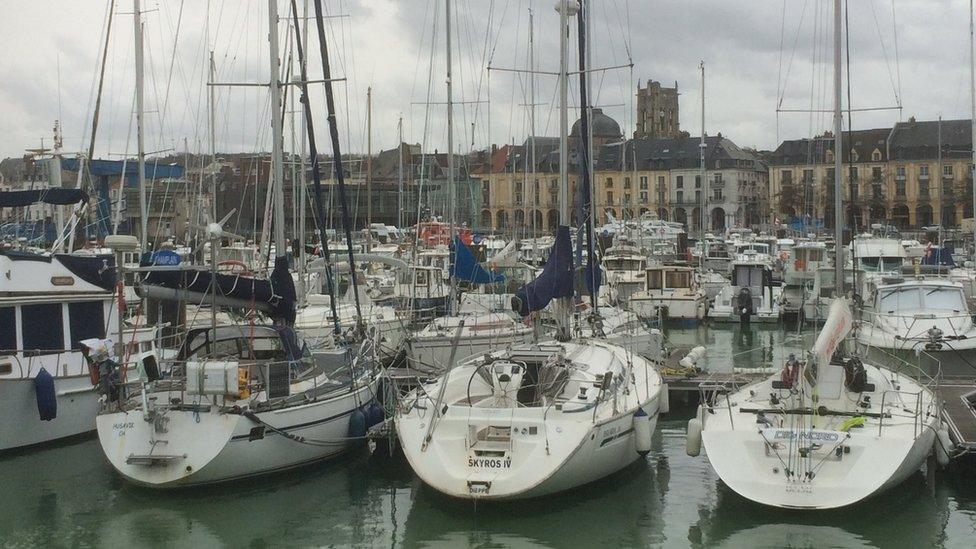
Boats have crossed the channel from Dieppe to the Sussex coast for centuries
Dieppe, on the Normandy coast, is tied to Sussex by centuries of sea crossings. Nowadays, the ferry from Newhaven is a gateway to France - carrying up to 40 lorries and 600 passengers two or three times a day in each direction. As the UK makes preparations for a possible no-deal exit from the EU, how are people in Dieppe responding?
I trudge along the quayside in the early morning light. A cool breeze blows salty air my way. A godsend, after a choppy crossing overnight.
I've come to the historic port of Dieppe. You could draw a straight line from Paris to London, and it would pass right through here.
Back home, the public conversation is dominated by Brexit.
But what do the Dieppois make of it all?
I approach the traders on the quayside, laying out their shellfish on upturned crates.
Here, my question is met with a gallic shrug.
"I've got nothing to say on that," snaps one vendor, barely glancing up from her work. "I am not well informed."
Another passer-by strikes a more conciliatory tone. "I don't think it's going to change a whole lot. I hope our relationship will last."
'Got to adapt'
If the UK leaves the EU without a deal, France has said goods and people would once again need checking as they enter the country.
In January, it activated its plans for such a scenario, and 50m euro is being spent across France's ports and airports.
In Dieppe, that means an extra eight customs officials at the port, as well as setting aside the old fruit warehouse for holding goods.
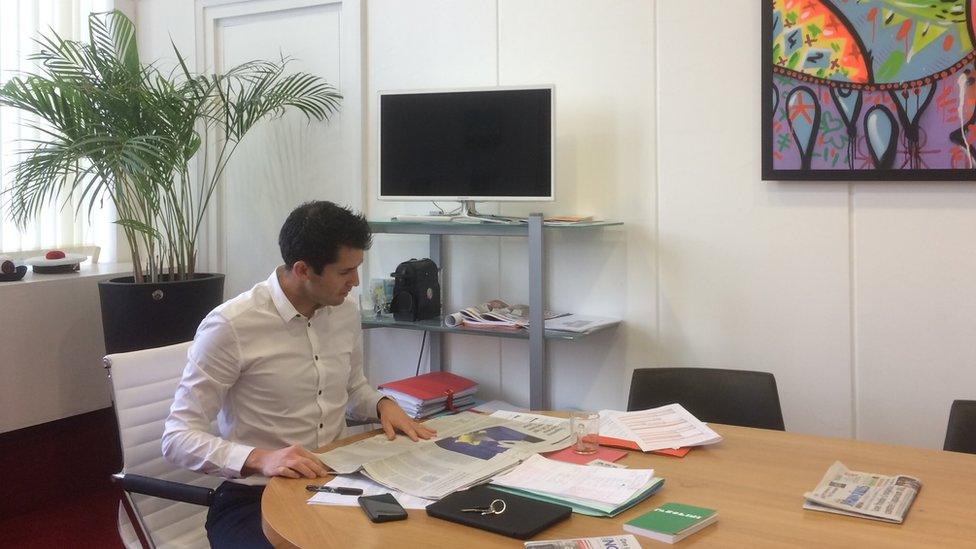
Nicolas Langlois wants a fourth daily crossing between Newhaven and Dieppe
Nicolas Langlois, the 35-year-old mayor, explains this all with a calm, relaxed air.
"The challenge for us is to reassure local people, because there are many of them who work around the cross-channel route.
"We're also asking for a fourth daily crossing, all year round, between Dieppe and Newhaven. If we were to get back 1%, 2%, 3% of the freight from Calais, then we'd multiply by two, by three, by four the freight to Dieppe and that would be economically important."
How does he feel, I wonder, about having to spend money and make preparations because of a decision France was allowed no part in?
"Pah! That's a very English question! C'est la vie. We've got to adapt."
In the afternoon, we're off to the races - Dieppe's well-manicured hippodrome, which has its own role to play in the town's Brexit preparations.
I'm joined by Agnes Sibers, president of a European racing club - the Fédération Internationale des Gentlemen-Riders et des Cavalières.
She explains: "Since British stallions are the best, and Norman ones are as well, British owners tend to send half of their mares to Normandy to get covered by French stallions.
"And going the other way, French owners and breeders send their mares to Ireland and England to be covered."
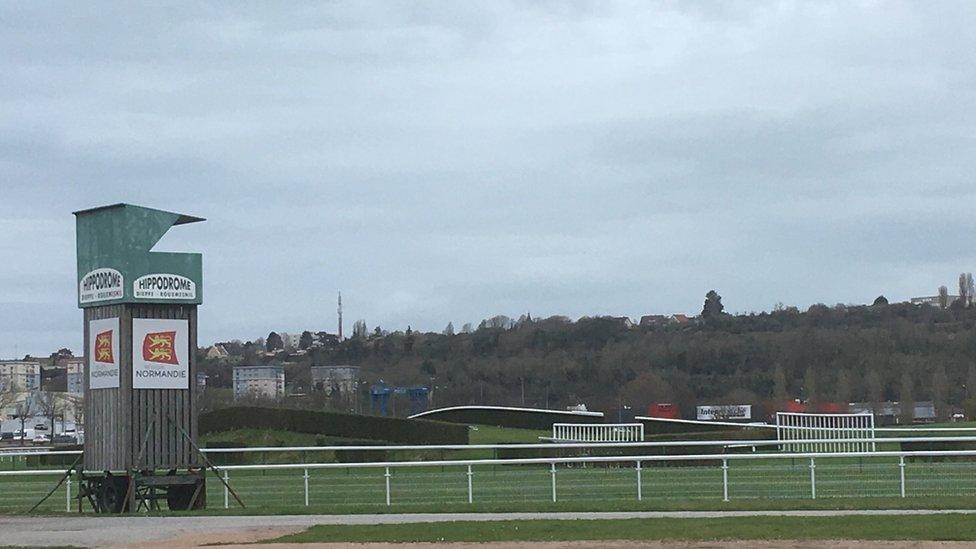
Dieppe hopes to have the necessary infrastructure to check 1,500 horses each year from June 2019.
If the UK leaves without a deal, these Channel-hopping horses - along with their foals - would be subject to veterinary checks not previously necessary.
The racecourse plans to build extra stabling and a 250m exercise yard for horses in quarantine.
Printing in coffee
My final stop takes me out of town, to a business park in the shadow of the gargantuan Nescafe factory.
The smell of coffee fills the valley - other brands presumably available elsewhere.
Here, Graham Precey from the Newhaven Regeneration Group joins Audrey Fontaine, of Normandie EcoSpace, to show me a workshop which makes expensive technology available to local start-ups and schools.
"Would you like to be scanned?" Audrey asks, earnestly brandishing a hand-held piece of kit.
It could, if I'm not careful, take a 3D map of me, ready to be printed in what looks like plastic.
In fact - the 3D printers here use coils made from recycled coffee and shellfish.
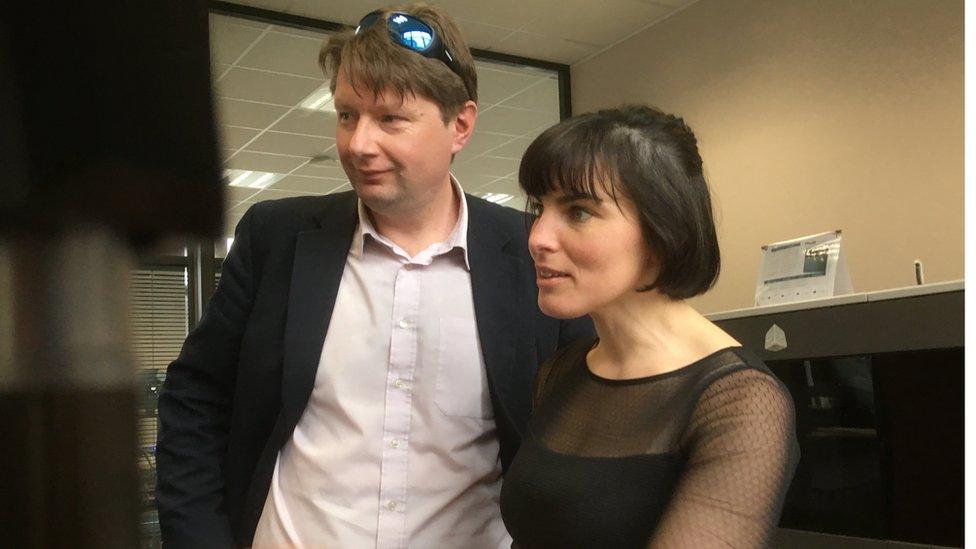
Graham and Audrey hope to see a version of the EcoSpace in Sussex soon.
Graham loves the setup. He's in talks to bring something similar to the Newhaven area.
Next month, both organisations are running a 'start-up cruise' across the Channel, where Norman and Sussex firms will link up.
Why all this cross-channel activity? Is Brexit focusing the mind?
Graham explains there's something else, too. In three years' time, the Normandy region will decide whether to continue subsidising the crossing to Dieppe.
"It's a 26m euro a year subsidy from the French side to fund the ferry. From our perspective, how can we make the ferry busier and prove it's value?"
A lot can change in three years, of course.
But in Dieppe, Brexit preparations tick on pragmatically, without much panic.
- Published17 January 2019
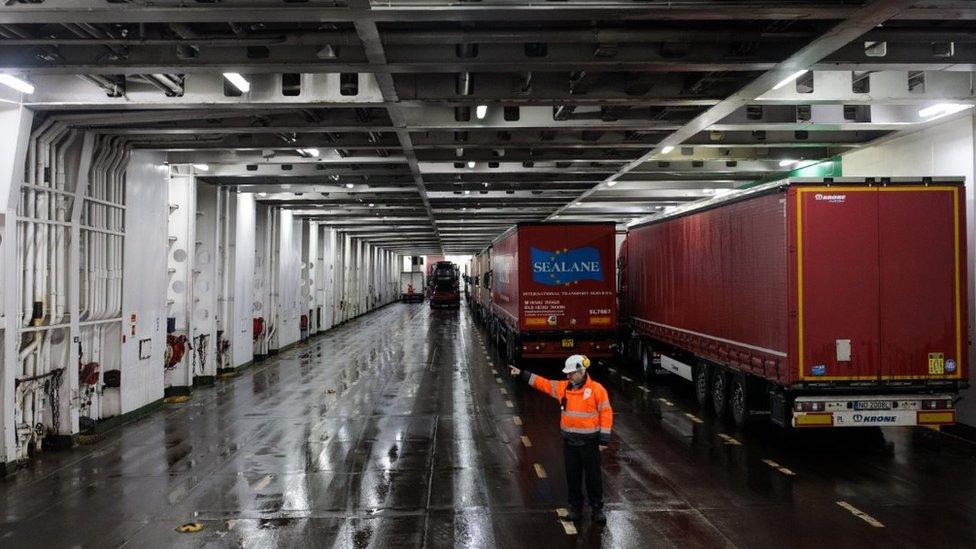
- Published7 August 2019
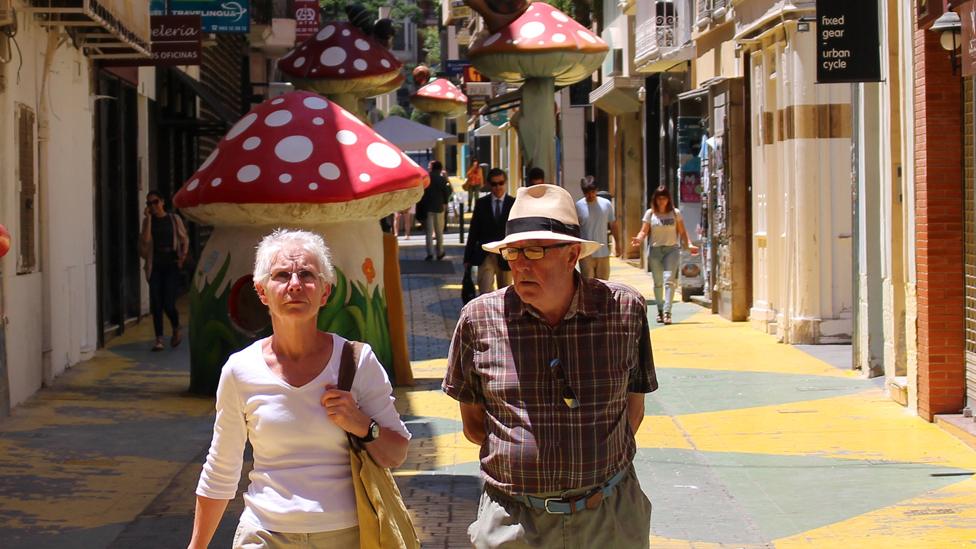
- Published13 December 2020
